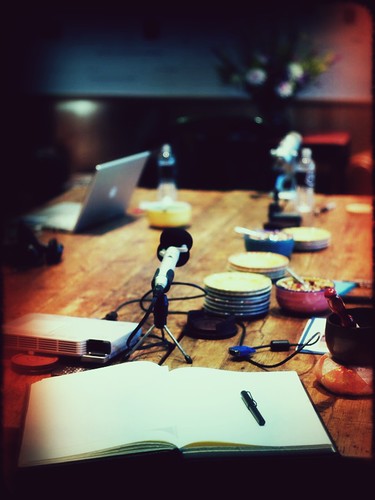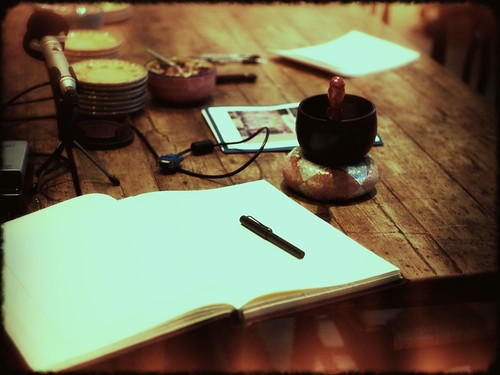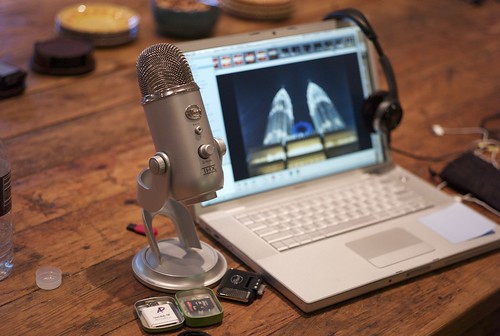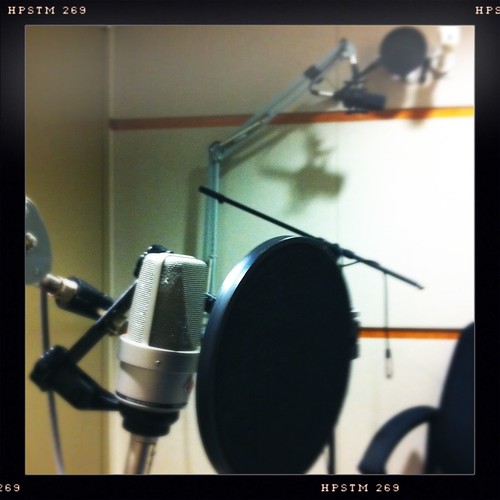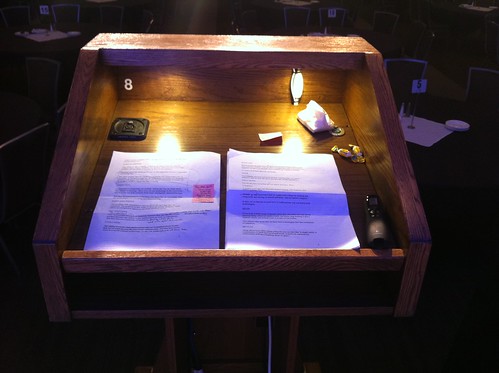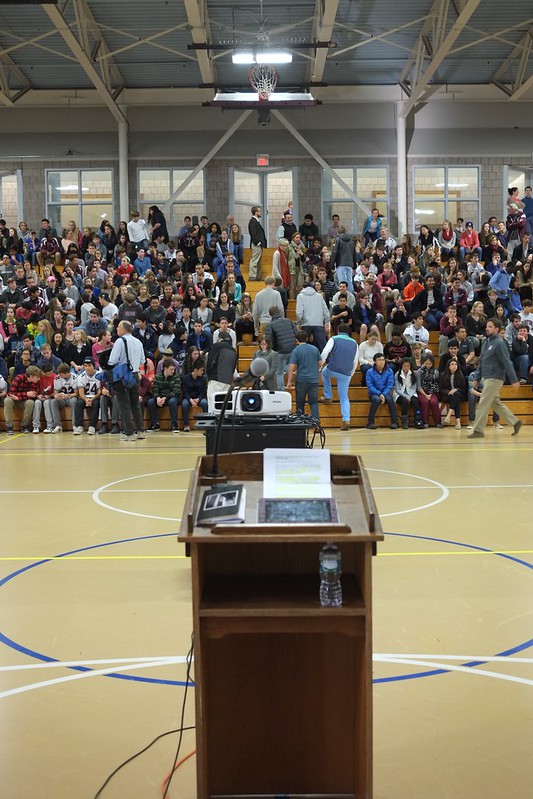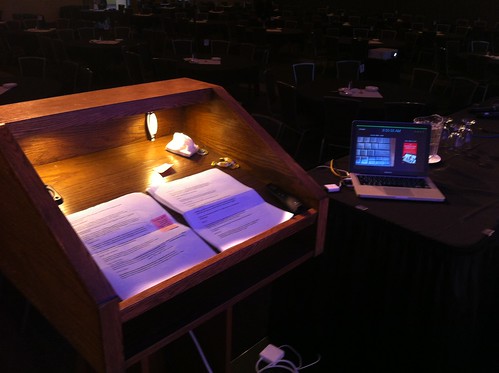When you’re giving a talk, your space should be your friend. Remember Frances Yates’ Art of Memory, and her discussion of the Roman orator’s memory palace? (Of course you do.) Your lectern, and the space in your immediate vicinity, should serve as a kind of memory palace, as well as a place that provides you with the cues and feedback necessary to do a great job.
We often pay very little attention to the space immediately around speakers, or the space around us when we’re giving talks. But people who do lots of talks organize their space as meticulously as they organize their desks. I first saw this in action when I was at IFTF and working with a futurist named Bob Johansen. Even before a conference call, Bob would arrange his notepad and pencil, drink, agenda, and other things so he could refer to them quickly and they’d be within easy reach.
(More generally, one of the things I’ve learned from professional facilitators and conference organizers is that there is no detail too small to consider. These are people who think about the number of minutes it takes for the caterers to refresh the coffee, how an agenda should unfold over the course of a day, how much energy people will have in the afternoon, etc., etc. ad infinitum. It pays off.)
I’d never thought of a call as something that demanded that level of physical preparation, but given how much time we spend on the phone (or on Skype) with clients, it makes perfect sense.
When I started doing radio interviews, the value of setting up your space that way– of treating it as an extension of your self– became super clear. Here’s a picture of my space during a satellite radio tour:
I’ve got the book right in front of me, and the coffee cup over on the left. I also have the PDF of the book on my iPad, which I can use to search quickly for a particular term or line from the book. On the stands, and on the board behind the iPad, are cards on which I’ve printed out answers to questions I would get regularly, or turns of phrase that I want have at my fingertips.
It may sound like cheating, but a good interview isn’t totally spontaneous; you don’t just throw off awesome turns of phrase, or little memorable anecdotes that listeners will remember. At least I don’t. In the moment, under the pressure of having to fill six minutes of Atlanta drive-time radio with an interesting conversation, I’m not going to trust to my memory the exact results of a survey done a year ago, or to use the phrase “weapons of mass distraction,” or that I could pivot from a question of the “technology, is it good or is it wack” variety to an answer about how we have choices about how we use technology; I’m going to have all that right in front of me.
And so it is with my talks: I find I do a better job if I take care to get onstage beforehand, look over the space, and arrange my stuff so everything is in a familiar, easy-to-reach place.
Here’s a picture of my lectern, from a talk I recently gave in Edmonton, Canada.
Obviously, it’s got my talk (which I print out, because paper never loses electricity, is light, and easy to annotate). But on the right you can see that I also have a small package of tissues and a few cough drops, because after 45 minutes your throat will start to dry out. Above my talk I place a post-it reminding me what time I should wrap up.
In the lectern below, you can also see the always-important water, easy to hand.
I also always try to have a screen on which I can see my slides, and the time.
Having that screen is very valuable, because it means you don’t have to keep looking behind you to make sure that the audience can see the correct slide.
And knowing what time it is, and how much time you have left, is crucial. As we all know, some academic speakers have a… casual attitude to time, and assume that the world can wait for them if they go half an hour overtime.
But in professional speaking going long is bad manners, and causes trouble to your hosts, especially if there are events (or classes) after you. You don’t want to put people in the position of playing catch-up because you went long– not if you want to be invited back, anyway.
Posts in this series:
